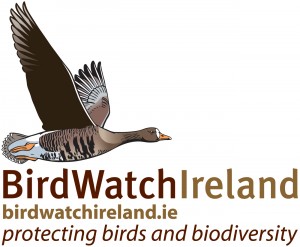Have you seen a Curlew? BirdWatch Ireland need you to report sightings of this endangered bird during the breeding season
9th May 2016
BirdWatch Ireland is appealing to members of the public to look out for breeding pairs of the highly threatened Curlew this year and to report them to the organisation.
The Curlew, with its long legs, large brown body and long, down-curved bill, is one of the most iconic and easily recognised birds of the rural Irish landscape. Its distinct and evocative ‘cur-lee’ call is a welcome sound that has been heard across Ireland for thousands of years. Sadly, this is changing, and the sights and sounds of Curlew in spring and summer are becoming increasingly rare.
“It is estimated that, since the 1970s, Ireland has lost almost 80% of its breeding Curlew population, with perhaps only 200 breeding pairs remaining,” explains Dr. Anita Donaghy, Senior Conservation Officer with BirdWatch Ireland. “As a result of this decline, Curlew have been ‘Red-listed’ and become one of the country’s highest conservation priorities. Curlew are on the edge of extinction as a breeding species in Ireland and urgently require surveys to locate breeding pairs and target conservation measures to protect them.”
This may come as a surprise to those who regularly see large numbers of Curlew in Ireland, as migrants arrive at our wetlands in large numbers from July onwards, remaining until spring. These birds are, in fact, from Britain and continental Europe; they come to Ireland for the mild conditions over winter, but return to their own countries to breed, with just the small number of native Irish Curlew remaining to breed here.
Last year, a concerted effort to locate breeding Curlew resulted in just under 100 pairs being found; it is hoped to build on this number in 2016. The information will be used to monitor long-term trends and help with the new conservation measures for this enigmatic and well-loved species. In particular, farmers with breeding Curlew on their land will be given priority access to Glas 3 when it opens, probably later this year.
Curlew nest on the ground in open habitats such as damp and rushy pastures, wetlands, meadows and boglands. They use their long, down-curved bills to probe for food in soft, wet areas and feed their chicks. Chicks hatch from their eggs in late May and early June and leave their parents care after 30-40 days, by which stage they are fully fledged.
Members of the public can take part in BirdWatch Ireland’s Curlew survey by submitting sightings of potentially breeding Curlew (i.e., sightings of one or two birds ONLY in suitable breeding habitat – groups of three or more birds flying together are a flock and likely to be migrants) via a quick and easy questionnaire which is available at https://www.surveymonkey.com/r/HDTZKY6
If you have a large number of sightings, or would like to get more directly involved with the survey, you can contact us at curlew@birdwatchireland.ie. For further information on this project and Curlew in Ireland, please visit our Breeding Curlew Survey webpage.
You might also like to follow the fortunes of Mary Colwell of the BBC via her blog (http://marycolwell.blogspot.ie/); Mary is currently walking from the west coast of Ireland to the east coast of England to raise awareness and funds for Curlew.







